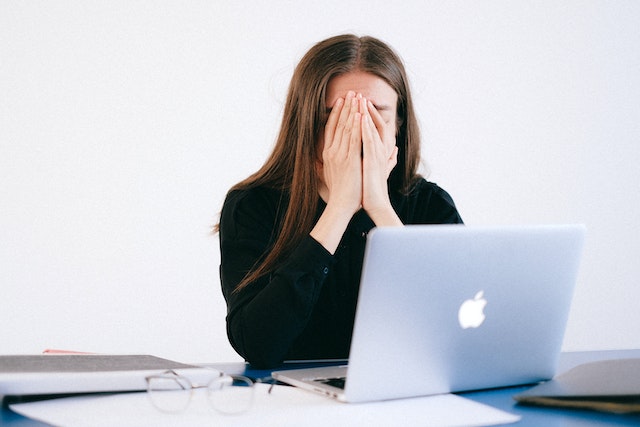Do you ever try to look forward to a time when you can switch off your anxiety, relax, and take some time out for yourself?
Maybe you have some time off work or holidays from school, and you want to relax, but eventually, it ends up being the complete opposite of what you planned. Just as you try to unwind or relax, your body tightens. Panic washes over you and all thoughts of relaxation are lost as anxiety overpowers all your senses. Eventually, you come out of your supposed break time even more stressed out than before.
If this is the case with you, you have plenty of company. This condition of being restless and anxious while trying to rest and relax is called relaxation-induced anxiety (RIA) and occurs in 15% of people with chronic anxiety. And this is precisely what it sounds like – being relaxed triggers anxiety.
Let us explore relaxation-induced anxiety, why it occurs, and the possible ways to deal with it.

What is relaxation-induced anxiety?
Relaxation-induced anxiety is the unfortunate condition of not being able to relax using any type of relaxation techniques like watching TV, meditation, or hanging out with friends. For those with RIA, the mental and physical sensations of relaxation are counter-productive, and after brief moments of rest, a spur of anxiety occurs.
However, if you cannot relax using conventional methods like Yoga or meditation but are at ease using some other ways, you are not suffering from RIA. It is also different from straight-up being unable to relax, as in the case of chronic anxiety. In RIA, you are able to relax doing whatever you like (swimming, cooking, etc.). But, it is not long before the relaxation becomes a trigger to your anxiety. It’s like you enter a brief chill state, but then your heart rate rises, and your breathing increases, ultimately making you feel anxious.
Shop now: Anxiety Mood Tracker – Say YES to your Calmer Self Today!
Why does this happen?
Dr. Christina Luberto from the University of Cincinnati, along with her colleagues, researched the causes of RIA in-depth. While a wide variety of reasons can cause RIA, Dr. Luberto was able to find a way out. They developed a 21-item self-examination test that can help people identify exactly what part of relaxation induces anxiety in them. This is called the Relaxation Sensitivity Test. The index is made of statements like:
- “I worry that when I let my body relax, I look unattractive,”
- “I worry that if I relax, other people will think I’m lazy.”
Ways to reduce Relaxation Induced Anxiety
Now that you know the meaning and causes of relaxation-induced anxiety, let’s decipher some ways to deal with the condition.
1. Accept what you are feeling.
One of the best ways to deal with any kind of anxiety is to accept your feelings. Going easy on yourself and understanding your situation are the best things you can do for yourself at the moment.
2. Ground yourself.
RIA is often caused by unwanted negative and intrusive thoughts that arise in your mind while trying to relax. One way to deal with these thoughts is to ground yourself. This means gaining awareness and becoming conscious of the present moment.
3. Show kindness to yourself.
The society we live in favors hustle culture intensively and makes us feel guilty about taking even a moment of rest. The fear of being called lazy or judged might prevent you from taking adequate rest and cause RIA. Thus, trying to be kind to yourself and accepting your body’s need to rest and rejuvenate might help you deal with your situation better.
Shop Now: Just Breathe Printable Poster
Conclusion:
Relaxation-induced anxiety is the increase in stress and anxiety as a result of trying to relax. The condition is often caused by intrusive thoughts and negative emotions. It affects 15% of people suffering from chronic anxiety. With lifestyle changes and proper care, the symptoms of RIA can be managed effectively.
However, if your anxiety has been over-powering and affecting your daily lifestyle, you might need proper professional help. Therapy is a powerful solution to dealing with relaxation-induced anxiety. Access to therapy has become even easier with the advent of online therapy platforms. To learn about the most affordable online therapy platforms, click here.
To continue learning about mental health daily, subscribe to Your Mental Health Pal.

